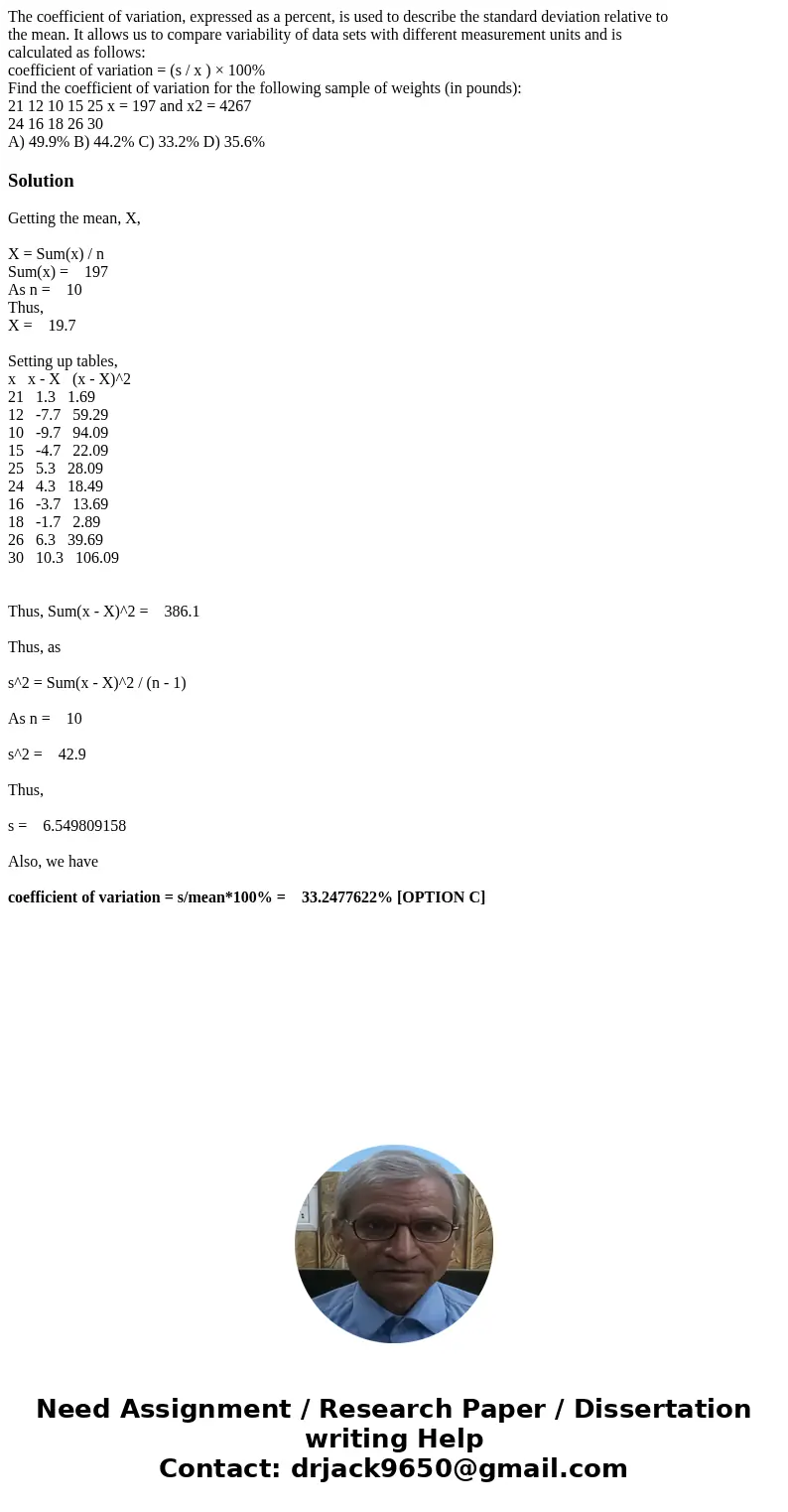The coefficient of variation expressed as a percent is used
The coefficient of variation, expressed as a percent, is used to describe the standard deviation relative to
the mean. It allows us to compare variability of data sets with different measurement units and is
calculated as follows:
coefficient of variation = (s / x ) × 100%
Find the coefficient of variation for the following sample of weights (in pounds):
21 12 10 15 25 x = 197 and x2 = 4267
24 16 18 26 30
A) 49.9% B) 44.2% C) 33.2% D) 35.6%
Solution
Getting the mean, X,
X = Sum(x) / n
Sum(x) = 197
As n = 10
Thus,
X = 19.7
Setting up tables,
x x - X (x - X)^2
21 1.3 1.69
12 -7.7 59.29
10 -9.7 94.09
15 -4.7 22.09
25 5.3 28.09
24 4.3 18.49
16 -3.7 13.69
18 -1.7 2.89
26 6.3 39.69
30 10.3 106.09
Thus, Sum(x - X)^2 = 386.1
Thus, as
s^2 = Sum(x - X)^2 / (n - 1)
As n = 10
s^2 = 42.9
Thus,
s = 6.549809158
Also, we have
coefficient of variation = s/mean*100% = 33.2477622% [OPTION C]

 Homework Sourse
Homework Sourse